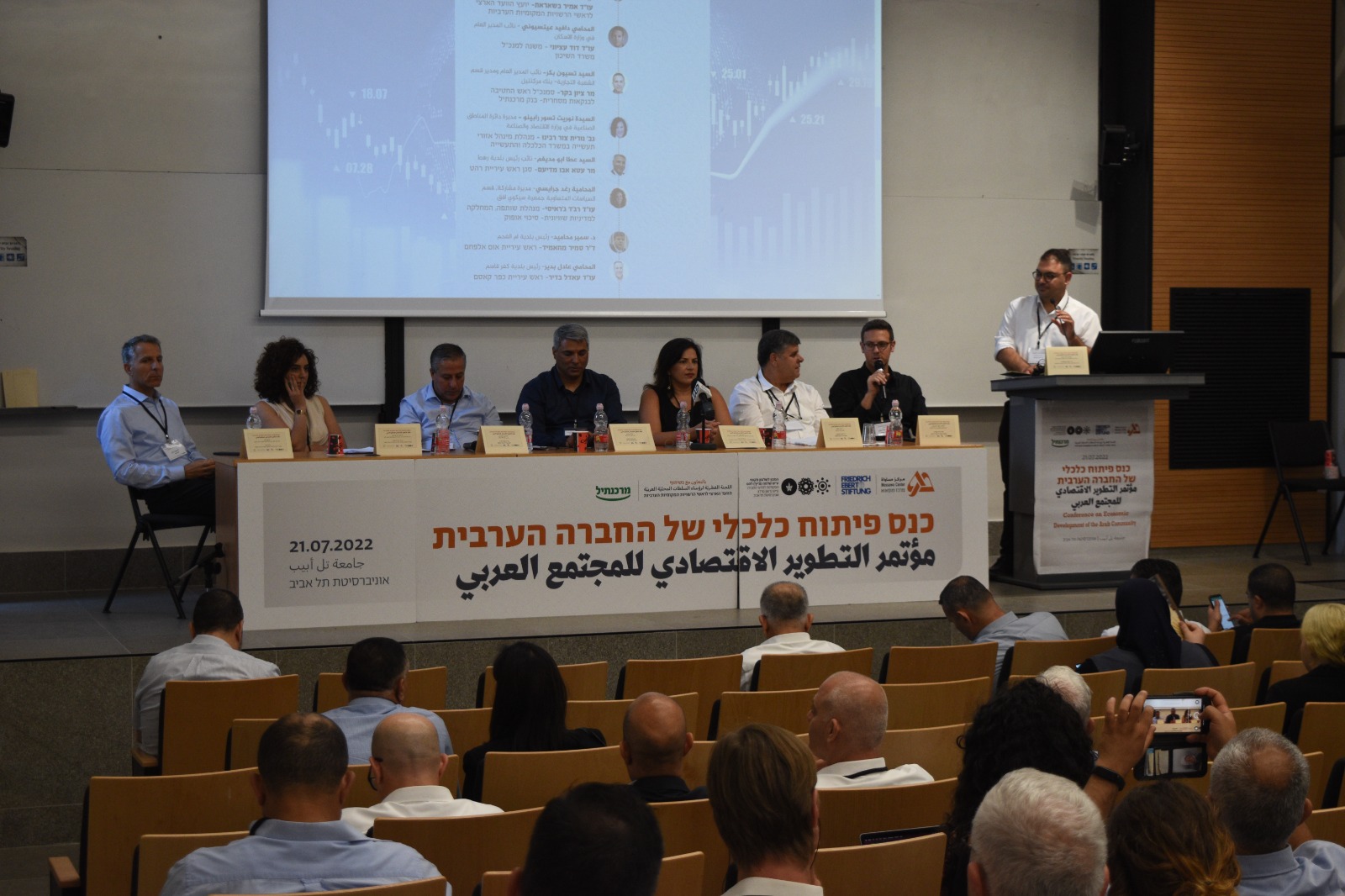
Vice mayor of Rahat, Ata Abu Mdighm, expressed the immaculate potential of Rahat for tourism and industry during his presentation at the Economic development conference: “We are located right in the middle of the country on the map. We cannot ignore the potential of Rahat. We are a city that doubles every 15 years. But how can we entice tourism when we have no pools? No facilities? No parks? We have excellent space and so much potential for domestic tourism in Rahat”.
Abu Mdighm “We aim to promote local industry and revenue, but we’re still in a bind trying to connect houses to gas and electric.” Mdighm also spoke of the city’s industrial zones, “While we don’t have an independent industrial zone, our joint industrial zone with Idan Negev is proving to be successful. We have earned 2 million NIS. It is also necessary to develop the new northern inner industrial zone. It’s stuck by the Israeli Land Administration.”
One of the highlights of the economic development conference focused on the role of Arab local authorities in ensuring sustainable economic growth in their communities, as well as the importance of industrial zones in boosting local revenue and stimulating economic development.
“We will hear more in this panel about local authorities, revitalizing the workforce, and developing local industry.” said a consultant to the National Committee of Arab Heads of Local Authorities, Amir Bisharat.
David Atsiony, Vice General Manager of the Ministry of Housing, discussed prior state budgets; "We want Governmental Decision 550 budgets to be larger, but keep in mind that GR 550 is still twice as large as GR 922."
Tsion Baker, Vice Manager of Business and Trade at Mercantile Bank, spoke on the bank's ongoing financial backup to Arab local councils and business in order to encourage local manufacturing and stated: "For example, if the municipality of Umm Al Fahem needs 6 million NIS to construct an industrial zone or finish a road and came to us with a clear financial plan, they could get a loan right away without any bureaucracy."
Norit Tsor Rabino, Director of the Industrial Zones Department at the Ministry of Economy and Industry, highlighted some of the hurdles that government ministries face in constructing new industrial zones in Arab communities.“The topography of Arab villages creates numerous planning and engineering challenges for us, necessitating recurring budgets…” in my opinion, budgeting is not the issue. There is also a big issue of land ownership between private and state land among Arab Localities” she continued, “There are 95 million NIS allocated for industrial zones each year, however only three Arab authorities have bylaws to get government subsidies for private lands. Promote the by-laws and approve administrative and legal framework.”
Dr. Samir Mahamid, mayor of Umm Al Fahem, “We cannot develop anything without tackling our need for industrial zones. We have been pleading for an industrial zone in Um Al Fahem since 2004. Now it’s 2022 and still no industrial zone. However we did succeed in building a technology center focused on employing women, we were also able to promote tourism and develop industry and businesses on the Wadi Ara road with our limited budgets.”
In concluding the panel, Adel Badir, attorney and mayor of Kafr Qasim, gave a fresh perspective on the issue of industrial zones. “I have been hearing this entire conference that private land ownership is a hurdle to establishing industrial zones, when it may be an advantage. We have succeeded in Kafr Qasim to construct a privately owned industrial zone. Not only did it go faster, but was also less expensive than what the state built on state-owned land…We currently have one industrial zone, and another old one. Our application for a third new industrial zone has been rejected. However, we will not be deterred, and continue to plead for a new one, since we have tremendous potential, despite the fact that we’re starting to feel like beggars.”









